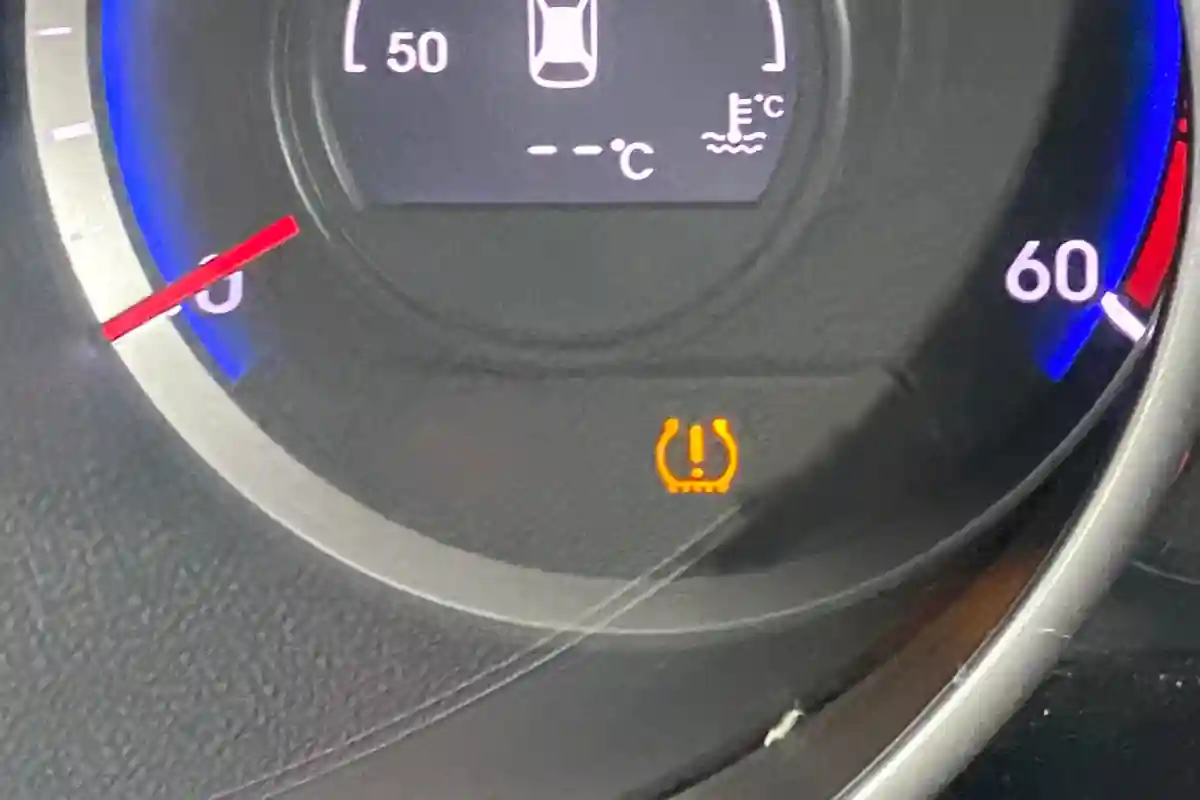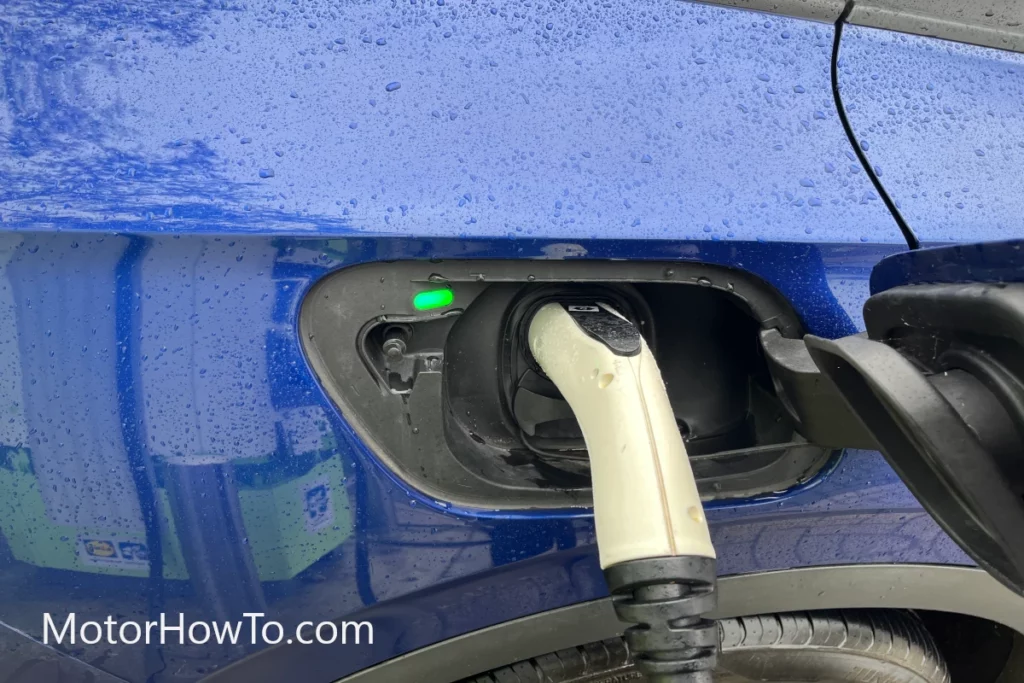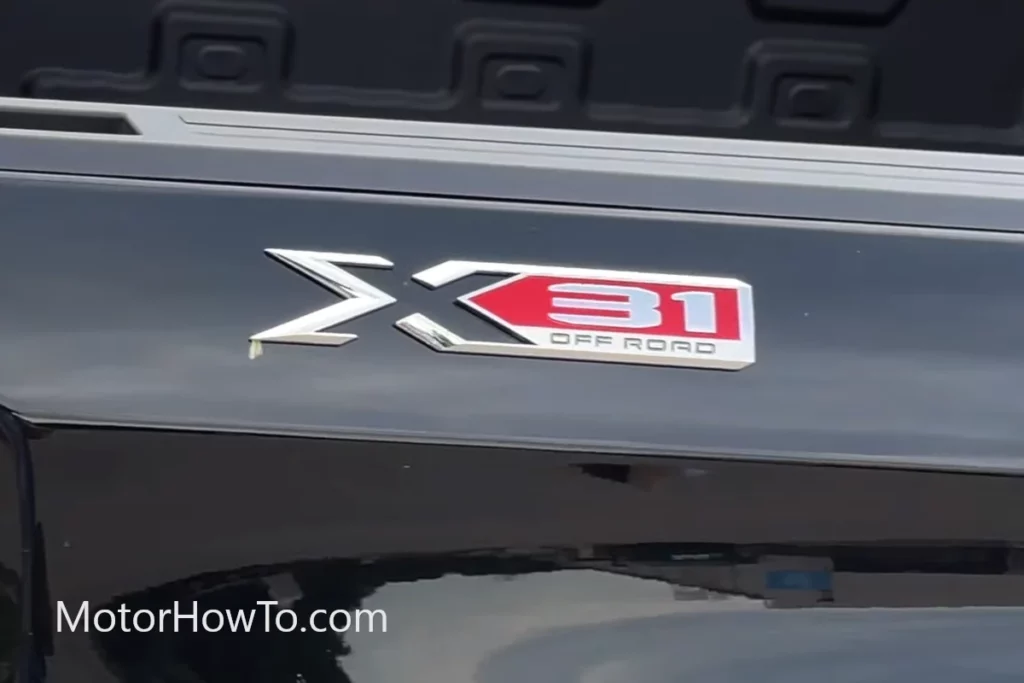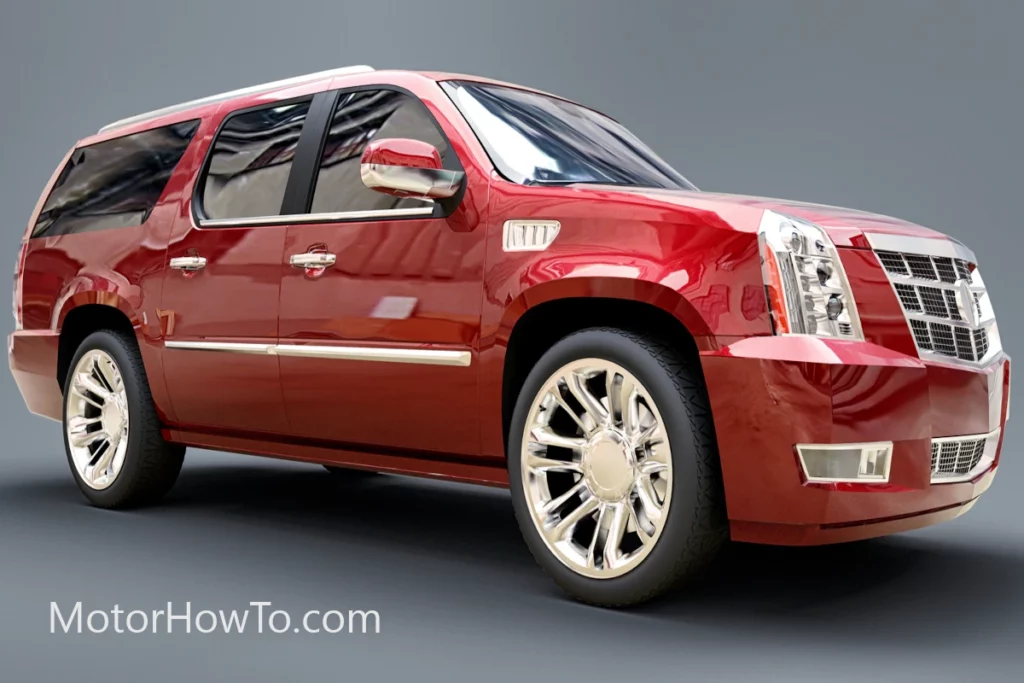When it comes to your tire air pressure, the TPMS (Tire Pressure Monitoring System) has become one of the most useful systems a car can have because how it automatically gives you real-time information regarding the air pressure in your tires.
So, when your tires are low in air pressure, the TPMS light on your dashboard will turn on to warn you that you need to check and put some air in your tires.
That said, if your TPMS lights are on when you have your car inspected, can you still pass the safety inspection?
Will the car fail the test with the TPMS light on?
You can still pass your car safety inspection in the USA with the TPMS light is on provided that the tires actually have the right air pressure in certain states. That’s because the TPMS is only there to tell you that your tires are low on air pressure but the TPMS is not exactly always right especially when it is worn out or faulty. However, in most European countries like UK/Ireland, you will fail the test.

But let’s concentrate on the USA and while the safety inspectors do indeed check the TPMS to see if the light is on, they will not fail your safety inspection just because it is on.
Remember here that the important part is that your tires have enough air pressure and are safe to drive.
As such, it becomes immaterial that the TPMS light is on as long as your tires actually have the right air pressure regardless of what the TPMS is saying.
Related:
- Do Spare Tires Have TPMS? (Explained!)
- Do you need to replace TPMS with new tires? (Solved)
- Is It Safe To Drive With Tire Pressure Sensor Fault? (Read First)
Will the car pass inspection with the TPMS light on?
One of the most amazing safety features that have been quite useful when it comes to many drivers is the TPMS.
That’s because the TPMS is capable of monitoring the tire pressure in your car and then providing a real-time feed of the readings to your dashboard so that you yourself can see the status of your tire’s air pressure.
When the TPMS does indeed detect that one or more of the tires are beginning to lose air pressure, that is the time when the TPMS will inform you through a warning message or a warning light called the TPMS light.
So, when the TPMS light is on, that could mean that your tires may be losing air pressure and that it is time for you to put air into your tires again.
Of course, this can be useful because of the very fact that you no longer have to manually check your tires for air as the system automatically does it for you.
And another thing you need to consider here is the fact that knowing how much air pressure is in your tires from a real-time standpoint can be a lifesaver especially when you consider the dangers involved with having tires with low air pressure.
You don’t want to lose control of your car while driving at high speeds on the freeway.
That said if you have your car undergo inspection and your TPMS light is on, what happens? Will your car pass the safety inspection even if the TPMS light is on?
Well, the answer to that question depends on certain factors.
For starters, the safety inspector will indeed check the TPMS to see if the light is on. If it is on, that is a cue for the inspector to check the air pressure of your tires.
So, in that regard, the tires are still more important in the sense that, as long as the tires have the right air pressure, your car will pass the safety inspection regardless of what the TPMS says.
The reason for this is due to the fact that the TPMS isn’t always accurate in telling whether or not the air pressure in your tires is enough.
That’s because the TPMS sensors are still bound to fail from time to time especially if it has become worn out or if it is faulty.
Of course, there is also the fact that the tires are still the more important pieces here. There was a time when people didn’t rely on the TPMS but were still able to make sure their tires had enough air in them.
As such, as long as you made sure to keep the right air pressure in your car, you are more likely safe to go regardless of what the TPMS light is saying.
So, even if your TPMS made a mistake by turning on the warning light even, you can still pass the safety inspection as long as the tires have enough air in them. But this is still subject to another factor.
USA state-wide TPMS vehicle inspection requirements
Below is the state-by-state analysis on TPMS and if it should be functional to pass the inspection.
| State | Does inspection fail for TPMS fault? | Inspection type & frequency | Inspection requirements |
|---|---|---|---|
| Alabama (AL) | Confirming with DMV | Safety: Non-standard | – Safety inspection is only required prior to the sale, prior to the transfer of ownership, or when rebuilding salvaged vehicles. |
| Alaska (AK) | Not applicable | Not required | – Emissions tests were required but stopped in March 2012. |
| Arizona (AZ) | Confirming with DMV | Emission: Every 2 years | – Emissions tests are done in Phoenix and Tucson metro areas only. |
| Arkansas (AR) | Not applicable | Not required | – The state encourages citizens to test their own vehicles for pollutants. Click here. |
| California (CA) | Confirming with DMV | Emission: Every 2 years VIN: Non-standard | – Emissions tests are dependent on the area – Check ZIP here while smog check is required for all out-of-state vehicles. Emissions test for any newer vehicle up to 6 years old, hybrids, electric vehicles, motorcycles, trailers, natural-gas-powered vehicles heavier than 14,000 pounds, diesel-powered vehicles made before 1997, and any vehicle made in or prior to 1975 is exempt. – VIN checks are required when registering an out-of-state vehicle. |
| Colorado (CO) | Confirming with DMV | Emission: Every 2 years VIN: Non-standard | – Emission and smog tests are only required for Boulder, Denver, Broomfield, Douglas, and Jefferson, as well as parts of Adams, Larimer, Weld, and Arapahoe counties. Check the map. However, new cars up to 7 years old, all-electric vehicles, farm vehicles, motorcycles, or 1975 model years or older are exempt. – VIN checks are required when registering an out-of-state vehicle. |
| Connecticut (CT) | Confirming with DMV | Emission: Every 2 years VIN: Non-standard | – Some safety inspections are required for commercial types of vehicles, like taxis, trailers, and driver-education cars. – Emission tests are required throughout the state and depend on the type of vehicle. Inspections however must be done by an authorized facility. – VIN checks are required when registering an out-of-state vehicle. |
| Delaware (DE) | No. Confirmed by the DMV | Safety: Every 2 years Emission: Every 2 years | – Newer cars up to 5 years old are exempt from all tests. – Emissions tests for newer cars up to 5 years old or models manufactured before 1967 are exempt. |
| Florida (FL) | Confirming with DMV | VIN: Non-standard | – VIN checks are required when registering an out-of-state vehicle. |
| Georgia (GA) | Confirming with DMV | Emission: Every year | – Emissions testing is only required for some metro counties. Newer cars up to 3 years old and older cars above 25 years old are exempt, which includes motorcycles, RVs, diesel-powered vehicles, and motor homes. |
| Hawaii (HI) | Yes. TPMS needs to be functioning properly in order to pass inspection | Safety: Every Year | – Newer cars up to 2 years old are exempt and inspections need to be done at authorized facilities. |
| Idaho (ID) | Confirming with DMV | Emission: Every 2 year VIN: Non-standard | – Emissions testing is only required for Ada and Canyon counties. – VIN checks are required when registering an out-of-state vehicle. |
| Illinois (IL) | Confirming with DMV | Safety: Every 2 year Emission: Every 2 year VIN: Every 2 year | – Inspection every 2 years applies to vehicles in specific zip codes, including Chicago and St. Louis metro areas. – Newer cars up to 4 years or cars before 1967 are exempt |
| Indiana (IN) | Confirming with DMV | Emission: Every 2 year VIN: Non-standard | – Emission testing every 2 years applies to vehicles in specific zip codes, including Lake County and Porter County – Inspections are to be done at authorized service stations. – Cars built after 1976 are exempt from inspection. – VIN checks are required when registering an out-of-state vehicle. |
| Iowa (IA) | Not applicable | Not required | – Salvaged vehicles and the commercial trucking industry will need some form of testing |
| Kansas (KS) | Confirming with DMV | VIN: Non-standard | – VIN checks are required when registering an out-of-state vehicle. |
| Kentucky (KY) | Confirming with DMV | VIN: Non-standard | – VIN checks are required when registering an out-of-state vehicle. |
| Louisiana (LA) | No. Confirmed by the DMV | Safety: Every year Emission: Every year | – Emission testing every year applies to vehicles in Baton Rouge metro parished |
| Maine (ME) | No. Confirmed by the DMV | Safety: Every year Emission: Every year | – Emission testing every year applies to vehicles in Cumberland county |
| Maryland (MD) | Confirming with DMV | Safety: Non-Standard Emission: Every 2 years | – Safety inspection is required only prior to a sale or transfer of vehicle ownership. – Emissions testing is required in the following county: Anne Arundel County, Baltimore City, Baltimore County, Calvert County, Carroll County, Cecil County, Charles County, Frederick County, Harford County, Howard County, Montgomery County, Prince George’s County, Queen Anne’s County and Washington County in Maryland. Emission testing is exempt for vehicles built in 1976 to older, all-electric or diesel-powered, farm vehicles, a motorcycle, historic vehicles, or any of these other exemptions. |
| Massachusetts (MA) | No. Confirmed by the DMV | Safety: Every year Emission: Every year | – Emission testing is for cars older than 15 years are exempt |
| Michigan (MI) | Not applicable | Not required | |
| Minnesota (MN) | Not applicable | Not required | |
| Mississippi (MS) | No. Confirmed by the DMV | Not required | – Inspection is only required for vehicles with tinted windows |
| Missouri (MO) | No. Confirmed by the DMV | Safety: Every 2 years Emission: Every 2 years | – Safety inspection for newer cars less than 5 years and historical plates are exempt Emissions testing is only required in St. Louis City and County, Franklin County, St. Charles County, and Jefferson County. |
| Montana (MT) | Not applicable | Not required | |
| Nebraska (NE) | Confirming with DMV | Safety: Non-Standard Vin: Non-Standard | – Safety checks are required when registering an out-of-state vehicle but trailers, motorboats, salvaged vehicles, and some other types of vehicles are exempt. – VIN checks are required when registering an out-of-state vehicle. |
| Nevada (NV) | Confirming with DMV | Safety: Every Year Emissions: Non-Standard Vin: Non-Standard | – Safety checks for newer vehicles less than 2 years old post-registration or built before 1968 including motorcycles and hybrids for the first five years are exempt – Emissions tests are only required in Las Vegas and Reno – VIN checks are required when registering an out-of-state vehicle. |
| New Hampshire (NH) | No. Confirmed by the DMV. | Safety: Every Year Emissions: Every Year Vin: Non-Standard | – Inspection is due the month of your birthday when your transfer or buy a new car – Emissions tests for cars built before 1996 are exempt |
| New Jersey (NJ) | No. Confirmed by the DMV. | Safety: Non-Standard Emissions: Every 2 Years | – Safety Inspection is only required for commercial vehicles – Emissions tests for vehicles less than 5 years are exempt. All commercial vehicles need to be tested every year. However, motorcycles, farm vehicles, collector and historic vehicles, trailers, mopeds, and certain diesel vehicles based on size and model year are exempt. |
| New Mexico (NM) | Confirming with DMV | Emissions: Every 2 years Vin: Non-Standard | – Emissions testing is only required for Bernalillo County and surrounding Albuquerque areas. Vehicles from 1982 or earlier, all-electric cars and diesel cars are exempt – VIN checks are required when registering an out-of-state vehicle. |
| New York (NY) | No. TPMS is inspected but it is not grounds for inspection failure | Safety: Every Year Emissions: Every Year | – Emission testing for vehicles 26 years or older and two model years or younger are exempt |
| North Carolina (NC) | No. Confirmed by the DMV | Safety: Every Year Emissions: Every Year | – Safety inspection for car models 35 years or older are exempt – Emissions testing is done in 48 countries (out of 100) while cars manufactured on or before 1995 are exempt, in addition to newer cars within 3 model years and less than 70,000 miles, diesel-powered cars, and farming vehicles. |
| North Dakota (ND) | Not applicable | Not required | |
| Ohio (OH) | Confirming with DMV | Emissions: Non-standard | – Emissions test is only required in Cleveland metro areas where newer vehicles up to four years or vehicles 25 years or older are exempt (Frequency of testing is dependent on even or odd model years). |
| Oklahoma (OK) | Confirming with DMV | Vin: Non-Standard | – VIN checks are required when registering an out-of-state vehicle. |
| Oregon (OR) | Confirming with DMV | Emissions: Every 2 Years Vin: Non-Standard | – Emission tests are only required in the Portland and Medford metro areas whereas cars manufactured prior to 1975 are not required to test. – VIN checks are required when registering an out-of-state vehicle. |
| Pennsylvania (PA) | No. Confirmed by the DMV | Safety: Every Year Emissions: Every Year Vin: Every Year | – Safety inspection is carried out every year (except Commercial vehicles over 17,000 pounds like buses, taxis, and tractor-trailers are required to be inspected semiannually) and must take place at authorized stations. – Emissions testing is done for vehicles in Pittsburgh and Philadelphia regions and other 25 of our 67 counties, however, diesel-powered vehicles are exempt. – VIN checks are done as part of the annual safety inspections |
| Rhode Island (RI) | Yes. TPMS needs to be functioning properly in order to pass inspection. | Safety: Every 2 Years Emissions: Every 2 Years Vin: Non-standard | – Safety Inspections are to be carried out by authorized stations for all cars including antique cars with antique plates, however, brand new cars less than 2 years old are exempt. – Emissions tests are however exempt for antique cars – VIN checks are required when registering an out-of-state vehicle. |
| South Carolina (SC) | Not applicable | Not required | |
| South Dakota (SD) | Not applicable | Not required | |
| Tennessee (TN) | Confirming with DMV | Safety: Every Year Emissions: Every Year | – Safety inspections for vehicles from 1975 or earlier, vehicles registering for the first time, motorcycles, or heavy vehicles weighing more than 10,500 pounds are exempt. Inspections are done every year at authorized stations. – Emissions inspections are required in Sumner, Hamilton, Rutherford, Davidson, Williamson, and Wilson counties |
| Texas (TX) | No. Confirmed by the DMV | Safety: Every Year Emissions: Every year | – Safety inspections for newer vehicles for up to 2 years are exempt after which inspections are done every year and must be carried out at authorized stations. – Emissions tests are required in 17 counties near Austin, Dallas (and Fort Worth), Houston, and El Paso and they slightly differ in the specific area. Vehicles more than 25 years old, diesel-powered vehicles, and motorcycles are exempt. |
| Utah (UT) | No. Confirmed by the DMV | Safety: Non-standard Emissions: Non-standard | – Safety inspection is done in intervals of four, eight, and ten years based on the model and annually thereafter. – Emissions tests (except for vehicles manufactured in 1967 or earlier and diesel-powered vehicles) are done every 2 years until vehicles are 6 years old and then done every year after that, however, they are required only in Cache, Davis, Salt Lake, Utah, and Weber counties |
| Vermont (VT) | Yes. TPMS needs to be functioning properly in order to pass inspection | Safety: Every Year Emissions: Every Year Vin: Non-standard | – Safety inspections are required every year and must be done at authorized stations – Emissions inspections are required every year however cars manufactured in 1996 or later are exempt. – VIN checks are required when registering an out-of-state vehicle. |
| Virginia (VA) | Confirming with DMV | Safety: Every Year Emissions: Every 2 Years | – Safety inspection is done every year and valid tickets from other states can be transferred until they expire – Emissions testing is required in Arlington, Alexandria, Fairfax, Falls Church, Manassas, Manassas Park, Loudoun, Prince William, and Stafford cities however vehicles that are 25 years or older, vehicles that weigh 10,000 pounds or more, all-electric, all-solar, or all-natural gas vehicles, qualified hybrids and motorcycles are exempt. |
| Washington (WA) | Confirming with DMV | Emissions: Non-standard Vin: Non-standard | – Emissions testing is only done in Clark, King, Pierce, Spokane, and Snohomish counties where the frequency is based on model number. Hybrids, newer diesel vehicles (2009 or newer), and motorcycles are exempt – VIN checks are required when registering an out-of-state vehicle. |
| West Virginia (WV) | Yes. TPMS needs to be functioning properly in order to pass inspection. | Safety: Every Year | – Safety Inspection at an authorized facility is required to be done annually. Inspections previously done in New York, Louisiana, Missouri, Mississippi, New Hampshire, Oklahoma, Utah, Texas, and Wyoming can be transferred and valid until the expiry. |
| Wisconsin (Wi) | Confirming with DMV | Emissions: Every 2 Years | – Emissions tests are required in Milwaukee, Ozaukee, Kenosha, Racine, Sheboygan, Waukesha, and Washington counties. All cars must be tested out in authored facilities and Diesel cars before 1996 are exempt from inspection. |
| Wyoming (WY) | Confirming with DMV | Vin: Non-standard | – VIN checks are required when registering an out-of-state vehicle. |
Do you need to fix the TPMS light before the inspection?
Now that you know that you can still pass your safety inspection even if your TPSM light is on, you still need to know one more consideration, and that is the TPMS itself.
So, if your TPMS light is on due to a faulty system or damaged sensors and not due to a simple mistake, this can still be a cause for not passing your car for safety.
The reason for that is due to the fact that there are some states that will require you to make sure that you have a working and functional TPMS before they pass your car for safety.
As such, if your TPMS light is on due to a damaged TPMS, then there is a chance that you still won’t pass the safety inspection even if your tires have the right air pressure.
As of this writing, the states that require you to have a functional TPMS to pass safety inspection are Hawaii, Rhode Island, Vermont, and West Virginia. If you live in those states, you need to make sure that your TPMS is working properly regardless of whether or not your tires have the right air pressure.
Then there are also states such as New York that will still inspect your TPMS to see if it is working. However, the TPMS is not a factor in failing your car’s safety inspection even if the TPMS is not working.
Still, you would have to make sure that your tires have the right air pressure for you to pass.
How do you turn off the TPMS light before the inspection?
The only way for you to turn off the TPMS light before inspection is to reset the TPMS.
Resetting the TPMS can be different from car to car but you usually have to press the reset button and hold it until it blinks.
From there, all you need to do is to let your car run for about 20 minutes for the sensors to detect the air pressure in the tires.
Resetting the TPMS light should work before inspection if and only if your tires have enough air. However, if you tried resetting the TPMS even if your tires don’t have any air in them, then the TPMS light will still turn on later.
This is why it is very important to make sure that your tires have the right air pressure.
Sources
Scionlife.com: TPMS light will pass inspection



